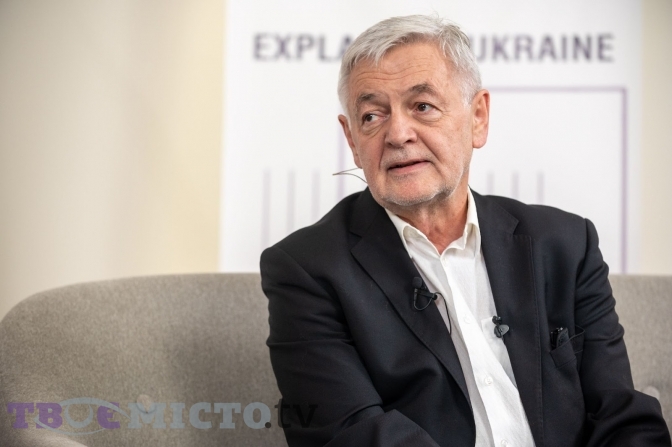
Welcome to Lviv! Please, tell us a few words about why you are in Ukraine now.
Because it’s a beautiful place, and I have a lot of friends in Lviv, but also in other parts of Ukraine. I spent a couple of years working in Ukraine, with Ukrainians, so there was no reason for me to stay out of Ukraine, especially at this very difficult time. Now, I work as an advisor to our [Poland’s] Deputy to the European Parliament, Witold Waszczykowski, who is the head of the European Parliament delegation to Ukraine. He also works with the Ukrainian delegation to European Parliament.
Today, we will talk more about Europe. Let’s start with Ukraine. What is your reflection on the changes that are happening or have happened in Ukraine since the time you were here as an Ambassador, and now, after 2019 and 2022?
There is plenty of very positive changes. First of all, when I was the Ambassador of Poland to Ukraine, I remember the day when Ukrainians got a permit to visit the EU countries without a European visa [visa-free regime of the entrance to the Schengen zone]. I remember the celebration, I remember the first train going from Kyiv to Premyszl with some Ukrainian politicians on the board. We managed to meet Ivanna Klympush-Tsintsadze [former Vice Prime Minister of Ukraine on matters of European integration until August 2019] at the train station in Kyiv. So I participated in this event. And to a very big extent, this lack of restrictions, the new situation helped young Ukrainians to visit Poland, to visit other countries of the European Union. It contributed very much to the changes which happened later on in your country. These people learned how it works, and they developed a feeling that they should introduce a similar style and standard of living in Ukraine, and it was happening. Unfortunately, of course, the bad side is Russian aggression. Russia tried simply to spoil what was already born in Ukraine and the reality that one day, Ukraine could join European Union and NATO. 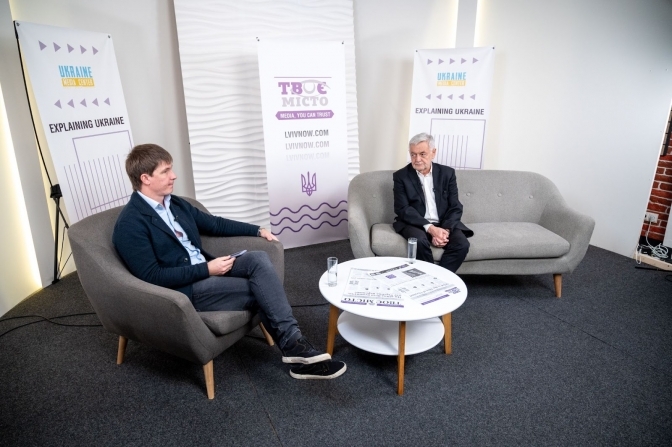
In this time after the Russian full-scale invasion, we see different numbers, mainly from five to seven million Ukrainians who left their home. Now, much more have had to go to the EU, and a bigger part of them stay in Poland. From the economic side, of course, it’s bad for Ukraine. But do you think this will have the same strong positive impact on Ukrainian society as you mentioned in the case of the Schengen visa changes?
Basically, it was a shock for Europe. From the Polish side, I can say that we welcome the Ukrainians, to my hometown of Krakow as well. And there was no problem with helping, we accommodated them in our houses. I remember the story with some eight workers from Western countries. They were coming to Przemysl, asking «where is the refugee camp in Poland?» There is no refugee camp because people were living with the Poles in their houses, in their flats. So it was also a shock for Europe. And Europe is still in the process of trying to adjust and find a concept of how to deal with the war and with the status of Ukraine. So I’m really moved, and it improved my personal feelings that finally, Ukraine got the status of candidate country. It was well deserved.
From your perspective, how long may it take?
It depends on a couple of factors. The first one is defeating Putin and the victory of Ukraine, and we believe that it might happen, and it should happen. In such a situation, after the defeat of Putin, or even after the collapse of the Russian Federation, and after they may overthrow Putin himself, it’s a very short track for Ukraine to join the EU. And it is quite correct that Ukraine’s participation in the EU project is beneficial for the EU. And it’s pretty much the same with NATO because the Ukrainian Army right now is the strongest and the most experienced Army on the European continent.
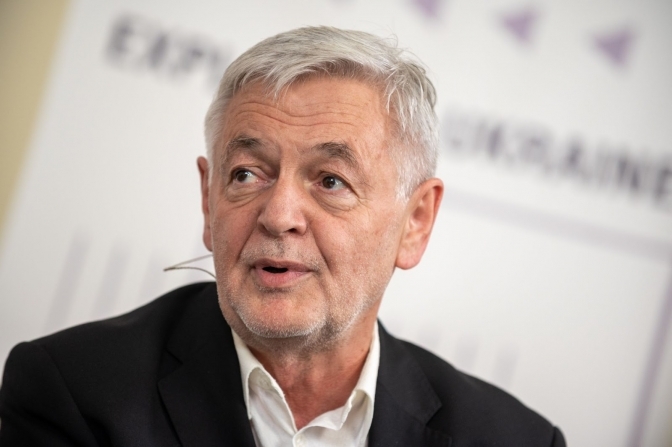
Do you think we’re as well ready in other issues, apart from the military side, to join the EU? And where are the possible gaps we have to elaborate on?
The EU needs Ukraine, especially at this moment, because they got confused and [tried to use] different tracks to approach the issue of the Russian invasion. I’m talking about Germany, I’m talking about France, who were willing to keep a dialogue with Russia. When I was in Ukraine, I observed a lot of changes. For example, the self-government reform, the administrative reform in Ukraine were almost completed, and it’s a great achievement regarding anti-corruption [measures]. It’s also Prozorro [state procurement system], and I’m talking about some other steps. So I believe that it will be really a speed track for Ukraine to get to the EU. Maybe with NATO, it may be a bit more complicated, though I think that Ukrainian participation in NATO would be beneficial for the Alliance itself.
Great, thank you for that! Let’s get back to the topic of war. You learned a lot from the history of the Balkans and wrote books about that. What should we take into consideration right now from that experience, in the situation we have today?
First of all, Yugoslavia was an artificial structure, a Federation of Yugoslavia. It was created after the war and run by a dictator, Joseph Broz Tito. That was a Communist Regime with the secret police. Regarding Russia, we see pretty much the same pattern that it is also a Russian Federation, an artificial structure. It’s a post-colonial federation with the land which was grabbed on different occasions – first by the Russian Empire, then by the Soviet Empire. And it looks like it is in the process of a big crisis. It’s a crisis of power, a crisis of a totalitarian regime which is unable to respond to the challenges. So yes, definitely, there are some similarities with the war in Yugoslavia. It also used these ethnic lines as a pretext, as a cause for the war. And it is what Russia was trying to do in Ukraine using the Russian ethnic issue as a cause for defending the rights of the Russian-speaking people in Ukraine. So, there are similarities, we can say.
Except for the strongest army in Europe, as you said, and strong civil society – what else do we need to have this victory as soon as possible and to have fewer losses of lives? What do we need not only as Ukraine but also as a continent?
You know, you need to get more direct military support from the United States, from Great Britain, from Poland, from Germany, France and from other countries. It is a must because it’s needed to save people’s lives, and the most important is anti-missile systems in order to protect the sky over Ukraine. It looks like the politicians in the West and in Ukraine are working on this. There are deliveries, and they are also planned by the German government. Germans weren’t very much active in this regard. It sounds encouraging but we will see what the action is.
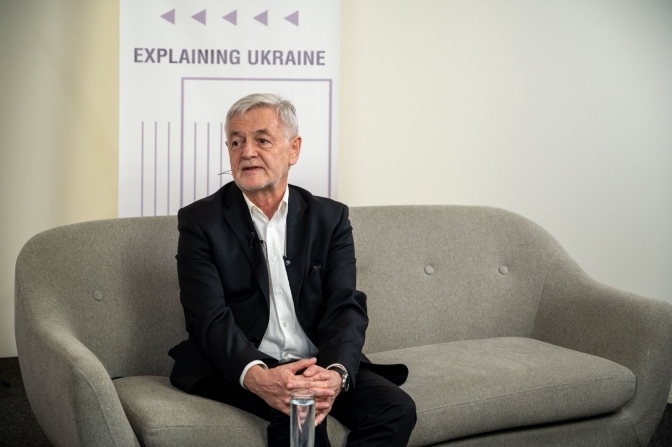
As a diplomat, what do you see in terms of German behaviour? First of all, do you see any shifts? Because we heard recently of German President Steinmeyer’s small change of rhetoric that was noticed here in Ukraine. Do you think it is a real shift going on, or do we still have a long way to go? Why is Germany going slowly with that?
By the way, we had one of such conversations in our studio with the former Minister of Trade and Economics of Ukraine, Pavlo Sheremeta. He said that we have to count into consideration the mentality of each nation, and the mentality of Germans is that, for example, they count every cent. Probably, because of this German mentality, it takes more time to make the right decision. Are there any other reasons for that?
Definitely, it was the issue of energy, it was an issue of Nord Stream-1 and Nord Stream-2. The German authorities, in particular, Angela Merkel, the former Chancellor, decided to make a strategic agreement with Russia, and they truly believed that they would be able to change Russia through trade and through this kind of behaviour. It was a total misunderstanding, as we can see. What is a pity is that Angela Merkel is not able to make a statement that she’s sorry. She’s not sorry, she’s almost proud of her politics. There are signals coming from some local German government officials that they believe the Nord Stream will be restored and they will be receiving the gas from Russia. So these are not encouraging signals. But basically, according to the polls, the German population is strongly pro-Ukrainian, though it may change the time of the winter when they will be having problems with heating and with energy. Probably, it is also the fear of the German government. But they behaved in a way which wasn’t good for the unity of the European Union. They worked for their own benefit and wanted to get this cheap energy from Russia in order to build a strong position for Germany in the European Union. And this concept has failed. We can remember that even at the beginning of the conflict, the former Chancellor managed to ask Biden not to put an embargo on Nord Stream-2, and Biden agreed. Now we see that it was a wrong decision from the side of Germany and from the side of American presidents. It’s quite clear that especially after these last explosions in the Baltic Sea on the Nord Stream-2 and Nord Stream-1, there is no future for this kind of projects, and Russia is no longer a credible partner for the global economy.
Do you see this shift towards a positive direction in Germany now?
Slowly. To some extent, it is true that the Germans are just accounting, calculating, and then they’ll make a good decision. The German government sees that they need to follow the others: the Poles, the Balts, the Slovaks, the Czechs. And they need to change the policy. It was nice for me as a Pole to listen to Ursula von der Leien and the German politicians saying that they should listen to Poland because we warned about the possible threats from Russia. So, this is a change, though we still see a kind of readiness and rhetoric from either Paris or Berlin that we need a dialogue with Russia. So my question is – with whom? With Kadyrov? Or with Prigozhin? Or with Putin? Right now? Putin is a criminal responsible for genocide in Ukraine. So what kind of dialogue, with whom?
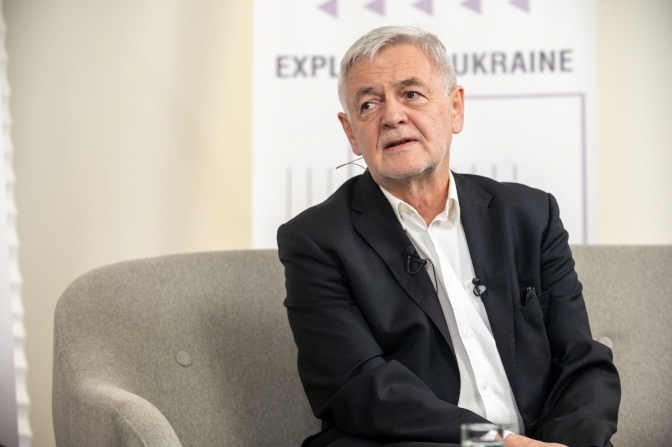
I know that you’re going to take an active part in the symposium that will take place in mid-January in the UK, together with Professor Ellery. What is your vision of the future of Ukraine? I suppose this symposium is focusing on that. What should Ukrainian authorities and civil society think of now and do right now?
First of all, there is the issue of winning the war. The second issue is the so-called post-conflict reconstruction, the rebuilding of Ukraine. It needs decisions, and it needs funding, of course. Funding should come from both sources: from the Western governments, from you, from the United States of America, but also from the frozen Russian assets in all these countries. And then, it is the preparation for joining the EU, following some regulations which are needed for EU membership. And also to think about NATO, which is probably a longer way but it is possible. That’s interesting because Poland first joined NATO, and then – the European Union. So maybe, it’s also a solution. It depends very much on the situation, depends on what will happen in Russia, depends very much on the western politicians, and to some extent, it depends on what will be the reaction of China regarding the potential collapse of Putin’s regime. Because it looks like China made a supportive statement for Putin and for his regime. Of course, it is rhetorics, which is verbal, but we still don’t know. At least until now, China is not supporting Russia militarily, like Iran, in a direct sense.
Let’s hope everything will move towards the right direction. As the last question, I would ask you for a short reflection on the current mood that you have. Because some of those who are and will be watching and listening to us, reading about it from all over the world might not be confident, might be afraid of coming to Ukraine at this particular time. What is your reflection on the current mood that you noticed in Lviv, in Kyiv when you came here this time?
I’m basically impressed with the determination of Ukrainians, with the will to simply win. And of course, there is a lot at stake, because it’s freedom, and freedom is very important. We, the Poles, know what it means. So it is the reason why Ukraine is very supported in Poland. So I’m impressed, and I am proud that I have a lot of friends in Ukraine. And I will continue coming here.
Taras Yatsenko spoke
Text by Vitalii Holich
Photos by Ivan Stanislavskyi/Tvoe Misto
Full or partial republication of the text without the written consent of the editors is prohibited and considered a violation of copyright.
Follow us on Facebook and Instagram. Lviv Now is an English-language website for Lviv, Ukraine’s «tech-friendly cultural hub.» It is produced by Tvoe Misto («Your City») media-hub, which also hosts regular problem-solving public forums to benefit the city and its people.


